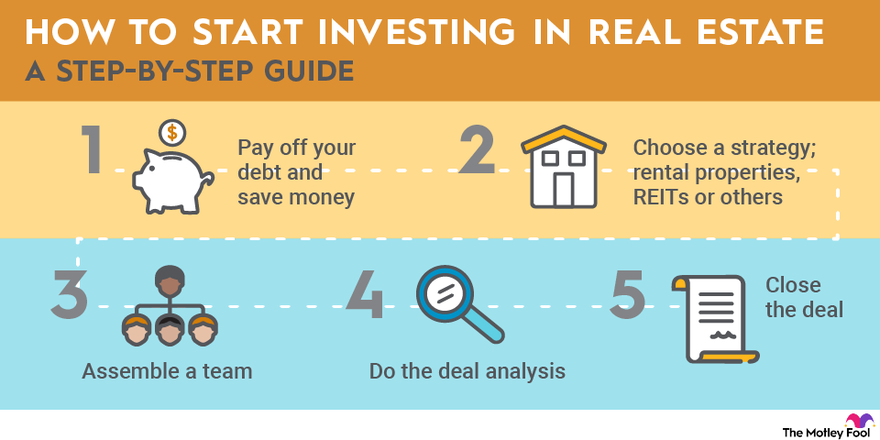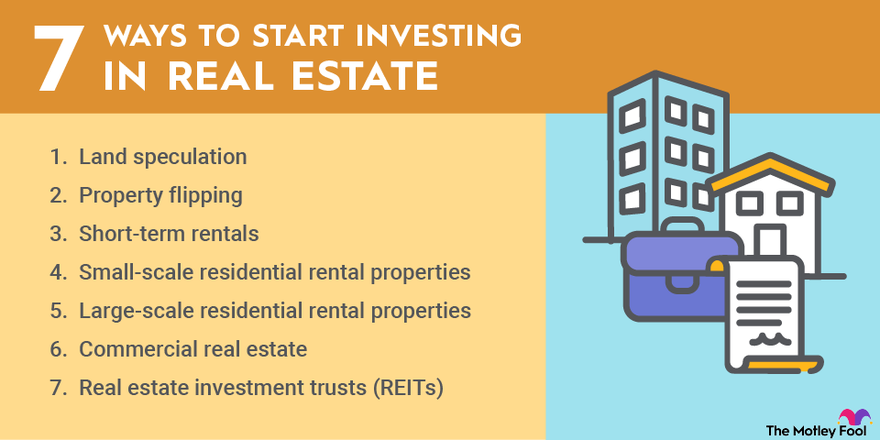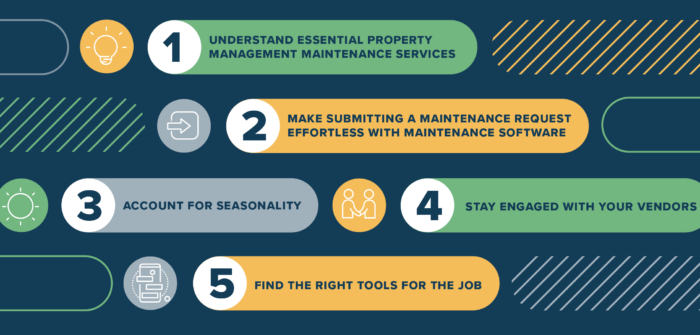Unlock the secrets of successful property management with our comprehensive starter guide. Everything you need to know in one place!
 Image courtesy of George Becker via Pexels
Image courtesy of George Becker via Pexels
Table of Contents
- Introduction to Property Management
- Qualities of a Good Property Manager
- Finding the Right Property Management Company
- Understanding Rental Management Strategies
- Financial Aspects of Property Management
- Building a Positive Relationship with Tenants
- Legal Considerations for Property Managers
- Marketing Your Rental Property
- Handling Property Management Challenges
- Conclusion: Key Takeaways in Property Management
- Frequently Asked Questions (FAQs)
Introduction to Property Management
In this section, we will delve into the world of property management, exploring what it means and why it’s crucial for the success of your rental property. Whether you’re a seasoned landlord or just starting out, understanding the ins and outs of property management is key to ensuring a smooth and profitable rental business.
What is Property Management?
Property management is the process of overseeing and maintaining real estate properties on behalf of the owner. This includes tasks such as finding and screening tenants, collecting rent, handling maintenance and repairs, and ensuring that the property complies with all regulations and laws. Essentially, property management involves taking care of all aspects of a rental property to maximize its value and profitability.
Why Rental Properties Need Good Management
Effective property management is essential for the overall success of your rental property. A well-managed property not only attracts and retains good tenants but also helps in maximizing rental income and maintaining the property’s value over time. Without proper management, landlords may face challenges such as late rent payments, property damage, and legal issues. By investing in good property management, landlords can save time, reduce stress, and ultimately achieve their rental property goals.
Qualities of a Good Property Manager
Being a good property manager requires certain skills and knowledge. A property manager should have a good understanding of real estate laws and regulations. They need to know how to market a property effectively to attract tenants. Additionally, having strong communication skills is crucial for dealing with tenants and resolving any issues that may arise. Problem-solving skills are also important for handling maintenance and other unexpected situations.
Being Organized and Responsible
Property managers need to be organized and responsible in order to effectively manage rental properties. They should keep detailed records of all transactions and communication with tenants. Being organized helps property managers stay on top of maintenance schedules and any needed repairs. Responsiveness is key when tenants have concerns or when emergencies occur. A good property manager takes their responsibilities seriously and ensures that the property is well-maintained and that tenants are satisfied.
Finding the Right Property Management Company
When it comes to managing rental properties, finding the right property management company can make all the difference. Here are some tips to help you pick the best company to look after your valuable investment.

Image courtesy of www.fool.com via Google Images
Researching Companies
Before choosing a property management company, it’s essential to do your homework. Start by searching online for companies in your area. Look for reviews and feedback from other landlords to get an idea of their reputation. Make a list of potential companies that seem reliable and professional.
Next, reach out to the companies on your list and ask for more information. Inquire about their experience in managing rental properties, the services they offer, and their fees. It’s crucial to find a company that aligns with your needs and values as a landlord.
Important Questions to Ask
When meeting with potential property management companies, be sure to ask them some key questions. Find out how long they have been in business and how many properties they currently manage. Ask about their communication process with landlords and how they handle maintenance issues.
Additionally, inquire about their tenant screening process and how they handle late payments or evictions. It’s vital to have a clear understanding of how the company operates and whether they will meet your expectations as a landlord.
Understanding Rental Management Strategies
Managing a rental property involves using different strategies to ensure that everything runs smoothly. Let’s take a look at some key rental management strategies that can help landlords keep their properties in top shape and attract good tenants.
Setting the Right Rent
One important strategy in rental management is determining the right rent for your property. It’s essential to find a balance between a price that is fair for your tenants and one that allows you to cover your expenses and make a profit. Researching the rental market in your area can give you an idea of what similar properties are renting for, helping you set a competitive price that will keep your property occupied.
Maintaining the Property
Another crucial aspect of rental management is maintaining your property in good condition. Regular maintenance can prevent bigger problems down the road and keep your tenants happy. This includes tasks such as fixing leaks, painting, and landscaping. By staying on top of maintenance, you can ensure that your property remains attractive to tenants and retains its value over time.
Financial Aspects of Property Management
When you rent out your property to tenants, they pay you a certain amount of money each month. This money is called rent, and it’s important to manage it wisely. Here are some tips for handling rental income:
 Image courtesy of www.fool.com via Google Images
Image courtesy of www.fool.com via Google Images
1. Keep track of all rent payments. It’s essential to have a system in place to record when tenants pay their rent and to ensure that you receive it on time.
2. Set up a separate bank account for rental income. By having a dedicated account for rent payments, you can easily track the money coming in and going out for your rental property.
3. Save some of the rental income for emergencies. It’s a good idea to set aside a portion of the rent money you receive each month for unexpected repairs or maintenance costs.
Budgeting for Maintenance and Repairs
Keeping your rental property in top condition is crucial to attracting and retaining tenants. To ensure your property is well-maintained, you need to budget for regular maintenance and any necessary repairs. Here’s how to do that:
1. Create a maintenance schedule. Regularly inspect your property to identify any issues that need to be addressed. By staying on top of maintenance tasks, you can prevent small problems from turning into costly repairs.
2. Estimate repair costs. It’s essential to budget for repairs by estimating how much they might cost. Having a financial plan in place will help you cover unexpected expenses without causing financial strain.
3. Factor in ongoing expenses. In addition to maintenance and repairs, don’t forget to budget for other recurring expenses such as property taxes, insurance, and utilities.
By managing your rental income effectively and budgeting for maintenance and repairs, you can ensure that your property remains attractive to tenants and continues to generate income for you as a property manager.
Building a Positive Relationship with Tenants
One of the most important aspects of being a landlord is maintaining open and effective communication with your tenants. By listening to their concerns and responding promptly to their inquiries, you can build trust and foster a positive relationship. Regularly checking in with your tenants to see how things are going and addressing any issues that arise promptly can go a long way in ensuring a harmonious living environment for everyone.
Dealing with Tenant Issues
It’s inevitable that problems will arise with tenants from time to time, whether it’s a late rent payment or a maintenance issue. When faced with these challenges, it’s vital to handle them diplomatically and efficiently. By staying calm, listening to all sides of the situation, and working towards a mutually beneficial solution, you can maintain a positive relationship with your tenants even during difficult times. Clear communication and a willingness to address problems head-on are key to resolving conflicts and keeping your rental property running smoothly.
Legal Considerations for Property Managers
Knowing the Laws
| Topic | Description |
|---|---|
| What is Property Management? | Property management involves overseeing and maintaining real estate properties on behalf of owners. |
| Responsibilities of a Property Manager | Some key responsibilities include tenant selection, rent collection, property maintenance, and financial management. |
| Types of Properties Managed | Property managers can handle residential, commercial, and industrial properties. |
| Legal Requirements | Property managers must comply with local laws and regulations regarding landlord-tenant relationships and property maintenance. |
| Benefits of Hiring a Property Manager | Property managers can save time, handle difficult tenants, and ensure properties are properly maintained. |
 Image courtesy of www.buildium.com via Google Images
Image courtesy of www.buildium.com via Google Images
Property managers have to follow certain laws and regulations to ensure the safety and fair treatment of tenants. This includes laws related to property maintenance, tenant rights, and eviction procedures. It’s crucial to stay informed about these laws and make sure your property management practices comply with them.
Preparing and Handling Lease Agreements
Lease agreements are legal documents that outline the terms and conditions of a rental agreement between a landlord and a tenant. Property managers must ensure that these agreements are properly drafted, clearly outlining rent amounts, lease terms, and responsibilities of both parties. It’s essential to handle lease agreements with care to avoid any misunderstandings or legal disputes in the future.
Marketing Your Rental Property
When it comes to renting out your property, getting the word out there is crucial to finding the right tenants. Here are some effective strategies to market your rental property:
Creating Catchy Listings
One of the first steps in marketing your rental property is creating a compelling listing that will attract potential tenants. Make sure to highlight the key features of your property, such as the number of bedrooms, bathrooms, amenities, and any unique selling points. Use high-quality photos that showcase the property in the best light possible. Be honest in your description to avoid any misunderstandings with potential tenants.
Using Online Resources
Utilize online platforms to reach a wider audience and increase your chances of finding the right tenants. Websites like Zillow, Trulia, and Craigslist are popular choices for listing rental properties. Social media platforms like Facebook, Instagram, and Twitter can also be effective tools to promote your rental property. Consider creating a website or a dedicated social media page for your rental property to provide more information and attract interest from potential tenants.
Handling Property Management Challenges
Managing a rental property is not always smooth sailing. From dealing with difficult tenants to unexpected repairs, property managers often face various challenges along the way. Here, we explore some common problems that may arise and provide tips on how to effectively address them.
 Image courtesy of www.doorloop.com via Google Images
Image courtesy of www.doorloop.com via Google Images
Common Property Management Problems
One of the most common challenges property managers encounter is non-payment of rent by tenants. This can put a strain on your finances and disrupt the cash flow needed to maintain the property. Additionally, property damage caused by tenants or wear and tear can also be a headache to deal with.
Another issue property managers often face is communication breakdown with tenants. Misunderstandings or lack of clear communication can lead to conflicts and frustrations for both parties. Moreover, keeping up with maintenance and repairs in a timely manner can be challenging, especially when unexpected issues arise.
Solving Issues Efficiently
When faced with property management challenges, it’s essential to address them promptly and efficiently. For non-payment of rent, establish clear rent collection policies and communicate them to tenants from the beginning. Enforce consequences for late payments to deter repeat offenses.
In the case of property damage, conduct regular inspections to identify any issues early on. Document the property’s condition before and after each tenancy to hold tenants accountable for damages beyond normal wear and tear. Consider implementing security deposits to cover repair costs.
To improve communication with tenants, be proactive in addressing their concerns and maintaining an open line of communication. Respond to inquiries promptly and provide clear guidelines on how to report maintenance issues. Consider using digital platforms for easy communication and record-keeping.
When it comes to maintenance and repairs, have a network of reliable contractors and vendors on standby for immediate assistance. Prioritize urgent repairs to ensure the safety and comfort of your tenants. Create a maintenance schedule to stay on top of regular upkeep and prevent costly repairs.
Conclusion: Key Takeaways in Property Management
Managing a rental property involves various aspects, from finding the right property management company to dealing with tenant issues. Here are the key takeaways to keep in mind when it comes to property management:
Choose the Right Property Management Company
Research thoroughly and ask important questions before deciding on a property management company. Finding a reputable and reliable company is crucial for the success of your rental property.
Develop Essential Skills as a Property Manager
Being organized, responsible, and having the necessary skills and knowledge are essential traits for an effective property manager. Stay on top of your game to ensure your rental property runs smoothly.
Maintain Positive Tenant Relationships
Communication is key when it comes to building a positive relationship with tenants. Listen to their concerns, address issues promptly, and work towards a harmonious living environment in your rental property.
Implement Effective Rental Management Strategies
Set the right rent price and prioritize property maintenance to attract and retain quality tenants. Keeping your rental property well-maintained and appealing is essential for long-term success.
By following these key takeaways and incorporating the tips for property managers provided in this guide, you can effectively manage your rental property and ensure a positive experience for both you as the landlord and your tenants.
Frequently Asked Questions (FAQs)
What are the first steps in becoming a property manager?
The first steps in becoming a property manager involve gaining knowledge about the responsibilities and laws related to managing rental properties. It’s important to understand the rental market, learn about setting rents, and develop good communication skills to interact effectively with tenants.
How often should a rental property be inspected by the manager?
A rental property should typically be inspected by the manager at least once every six months. Regular inspections help ensure that the property is well-maintained and that any issues are addressed promptly. It also allows the manager to check for any lease violations or needed repairs.
Can a property manager evict a tenant, and how does that process work?
Yes, a property manager can initiate the eviction process if a tenant violates the lease agreement or fails to pay rent. The process involves serving the tenant with a notice to remedy the issue or vacate the property. If the tenant does not comply, the manager can file for eviction through the legal system, which may result in the tenant being forcibly removed from the property.
Idaho Poperty Management
